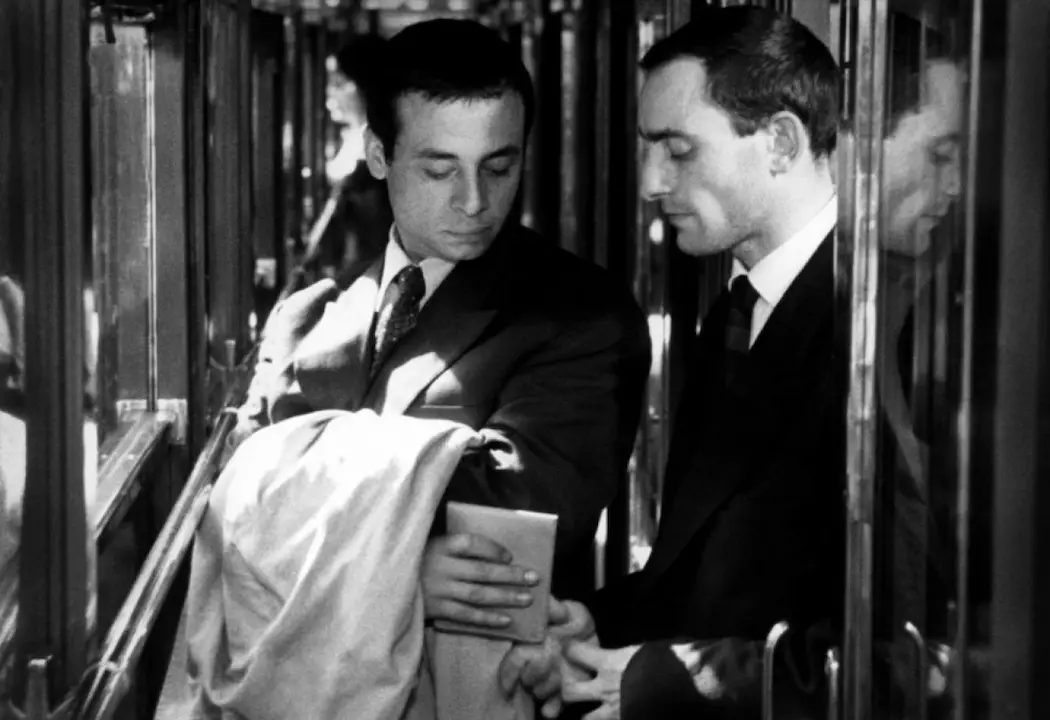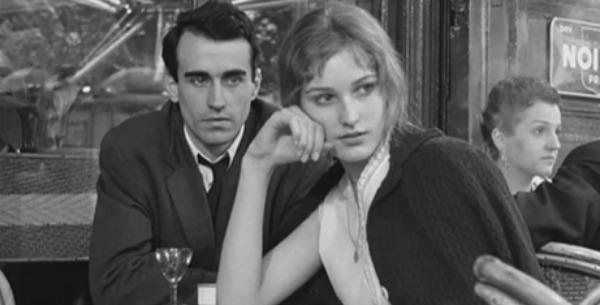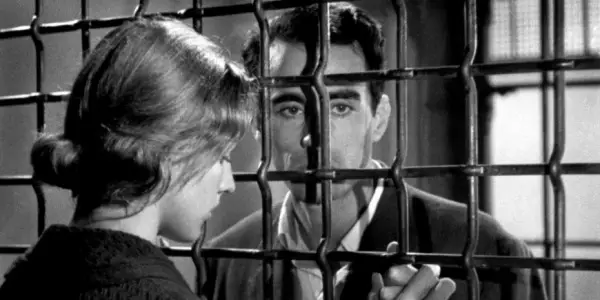PICKPOCKET: Crime & Punishment Of The Mundane

Tynan loves nagging all his friends to watch classic movies…
Pickpocket is an intricately staged, truly intimate character study from the imitable Robert Bresson instantly solidifying itself as one of his greatest works. As was his practice, Bresson took Martin LaSalle, a non-actor to be his leading protagonist and puts a magnifying glass to his every movement.
The Uruguayan-French actor sports gaunt, rather severe features, thick eyebrows, a sauntering gait and a slumped posture. However, there’s also some facial similarity to Henry Fonda there, except LaSalle is even more “normal” if you can go so far. He seems altogether un-extraordinary and still, Bresson manages to tell an engaging story with such an unassuming star–not through emotions but the inverse–a complete lack of emotions replaced instead by actions stripped down to their purest elements.
Aside from being a vagrant who lives in a dilapidated flat, Michel is a perennial cynic who holds a bit of a superman complex. In fact, he’s not far off from Raskolnikov in Fyodor Dostoevsky’s Crime & Punishment. The difference being Michel’s crimes are more mundane and as such the outcomes are far less pronounced. Still, after receiving recompense for his deeds, he too achieves a kind of redemption. That’s of vital importance in understanding both stories.
A Life of Blue Collar Crime
With such a life as he leads -not working, with few friends and little to do aside from betting on the horses – Michel fills his idle hours learning what it is to be a pickpocket. He immerses himself in the pursuit, so much so that it soon becomes his livelihood as he joins forces with a couple accomplices, still honing his trade, and gleaning inspiration from the life of pickpocket socialite extraordinaire George Barrington.
Except Michel seems nothing like this man. He’s no adventurer with a colorful personality. He watches the world with passionless eyes, lacking true purpose. He hardly talks to anyone, and when he does, it’s generally brusque in nature. He’s not looking to make friends aside from his “buddy” Jacques (Pierre Leymarie). He hardly even visits his sickly mother even when she’s lying on her deathbed. The only thing he does any with ambition is stealing.

But that’s what makes his neighbor Jeanne (Marika Green) all the more fascinating because she brings something out of him. It just takes him a long time to realize it. I cannot get it out of my head that Marika Green shares some striking resemblance to Natalie Portman. This notion shot into my head the first time I ever viewed Pickpocket. It serves no real obvious purpose but to suggest her beauty and maybe even that there’s a modernness to her or better yet a timelessness behind her eyes that’s full of some sort of inexplicable power. Maybe Natalie Portman has that same quality as well. I will leave that for others to decide.
It’s striking that many of the scenes in Pickpocket are nearly silent, lacking scoring and often even dialogue, and yet they’re choreographed like the most elaborate dance in a musical. Instead of feet, though, hands are involved; the dexterous hands and limber fingers of pickpockets. Michel’s eyes rove as much as his prying fingers. It becomes a wonderfully exquisite orchestration of motions combined and layered on top of one another.
The arresting quality is not so much what the men pull off as this is fiction but the way in which Bresson delivers it to his audience. Once again it’s a deep understanding of the innumerable beautiful complexities of human movement. In this case, what results is a blue-collar crime ballet of forms.
There are also similarities here with Sam Fuller’s Pickup on Southstreet (1953) except in this case the life of a pickpocket is the extent of his existence. There are no gangsters, hidden plots, or big implications pointing to Cold Wars and Communists. But if they share anything it’s their equally impressive understanding of economical filmmaking with the innate ability to tell rich, impactful stories in a highly condensed amount of time.

Michel’s life is pitifully mundane in a sense and yet within that context, he’s still able to find hope and that’s the beauty of what Bresson suggests here through the simple functions of sound and image. He evokes a great deal from those very spare building blocks.
Resurrection of “Lazarus”
Thus, it was not the final words of Pickpocket that struck me (ie. Oh, Jeanne, to reach you at last, what a path I had to take) but rather the image that we are left with. There stands Michel incarcerated in prison. It seemed inevitable. Because supermen do not exist, at least not in the way that he supposed. And yet in the same breath, when he shed that philosophy he found something better.
He caresses Jeanne through the bars, kisses her face. Yes, he’s still trapped, stuck in such a horrible spot without his freedom. And yet, the utter irony of it all is that in this one moment, before a very abrupt conclusion, Michel is finally free; finally saved by the graces of love and it took a prison cell to teach him as much.
His life was propelled by inaction highlighted by contained moments of theft and deception. Therefore, it’s in this final instance that Michel begins to exhibit some amount of goodness and affection bursting forth. His life no longer seems to be defined by being a pickpocket. For once, it’s defined by something else – by someone else.
Whereas Raskolnikov realized that he needed Sonya to resurrect him much like the Christ resurrected Lazarus, Michel comes to a similar conclusion here though he only believed in God for three minutes. Still, in a sense, he has been redeemed and now there’s a certain amount of hope in his life going forward. The straight and narrow is a tough road to traverse but Michel might find it yet.
What other comparisons can be drawn up between Bresson’s film and Crime & Punishment? How are they able to succeed differently utilizing the artistic forms of film and literature respectively.
Pickpocket was originally released on December 16th, 1959 in the France. It can be streamed on Amazon or purchased from The Criterion Collection.
https://www.youtube.com/watch?v=knaJd298xE0
Does content like this matter to you?
Become a Member and support film journalism. Unlock access to all of Film Inquiry`s great articles. Join a community of like-minded readers who are passionate about cinema - get access to our private members Network, give back to independent filmmakers, and more.
Tynan loves nagging all his friends to watch classic movies with him. Follow his frequent musings at Film Inquiry and on his blog 4 Star Films. Soli Deo Gloria.












